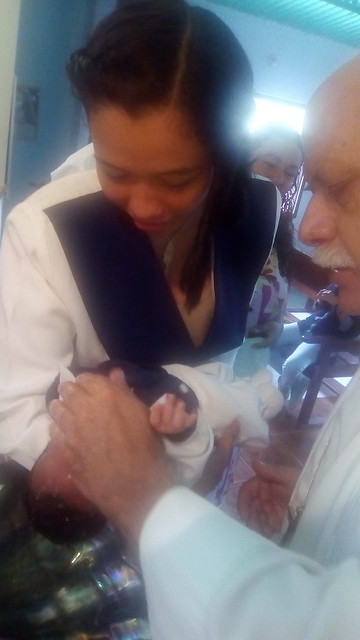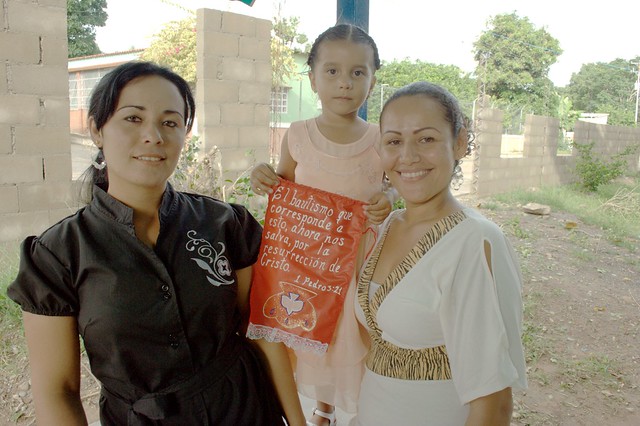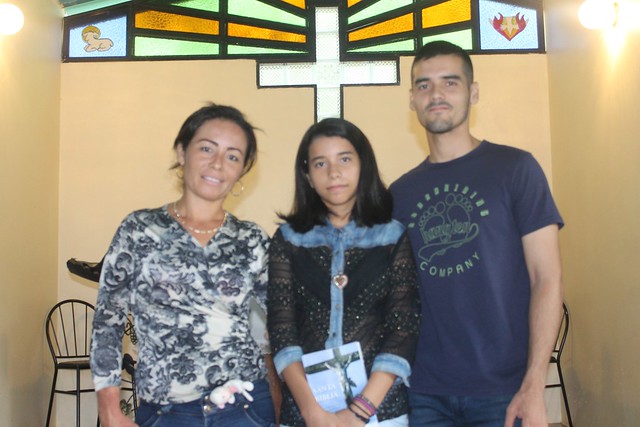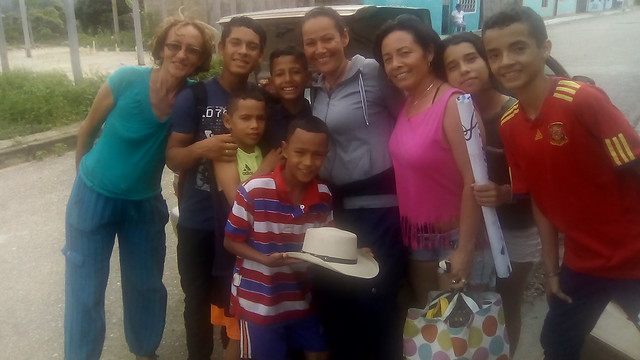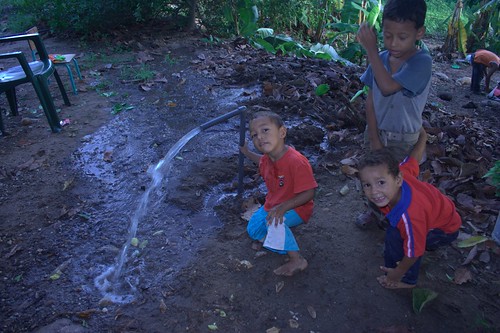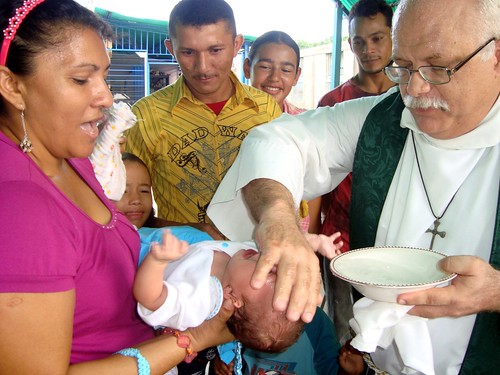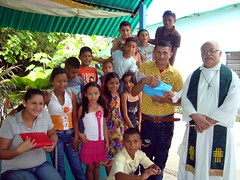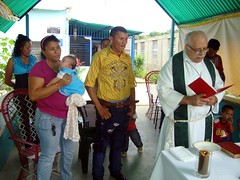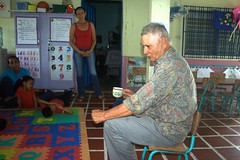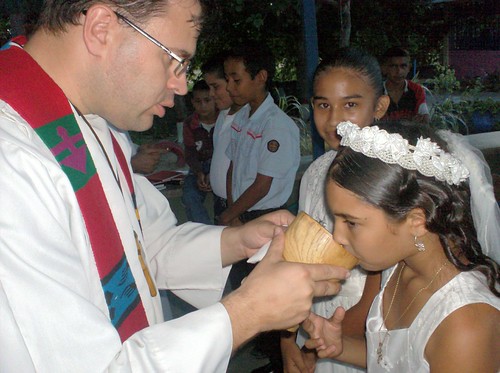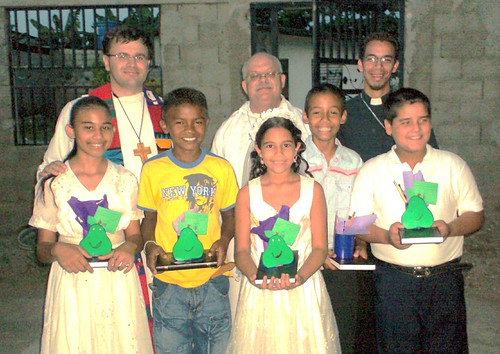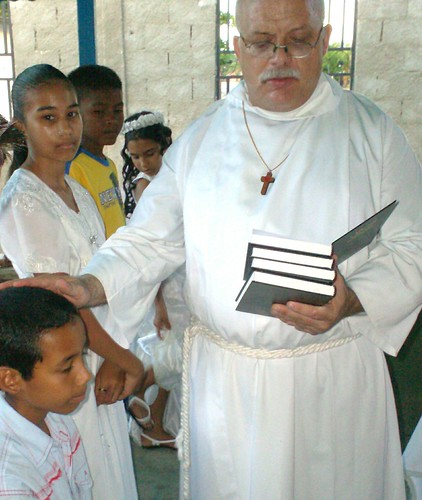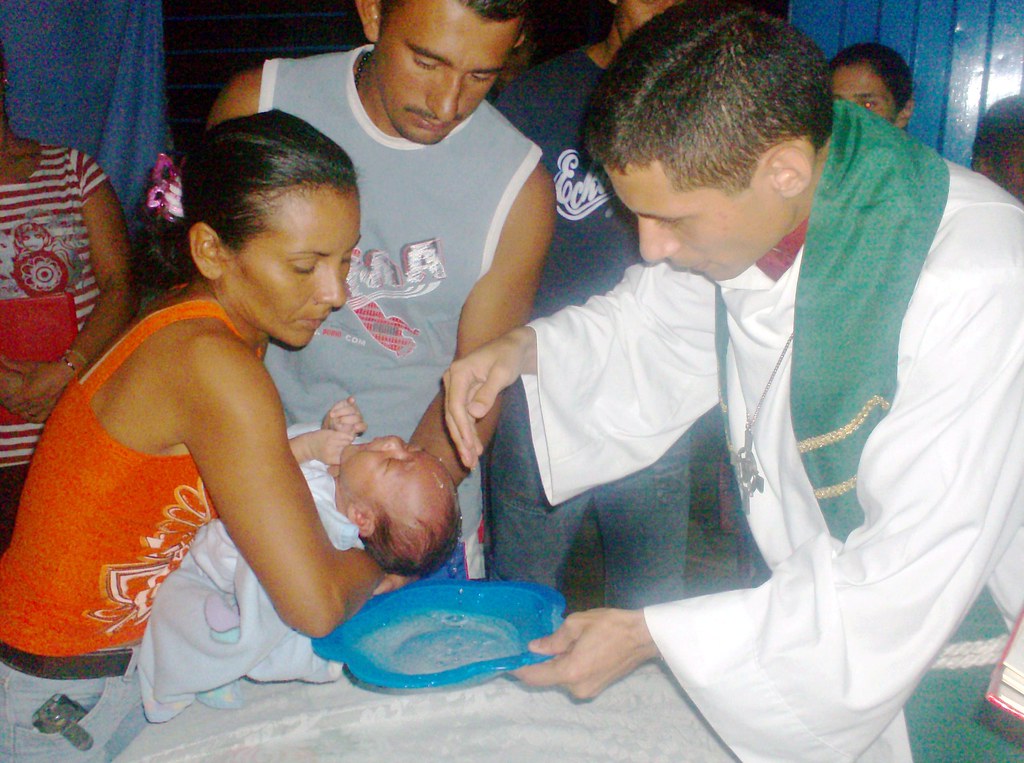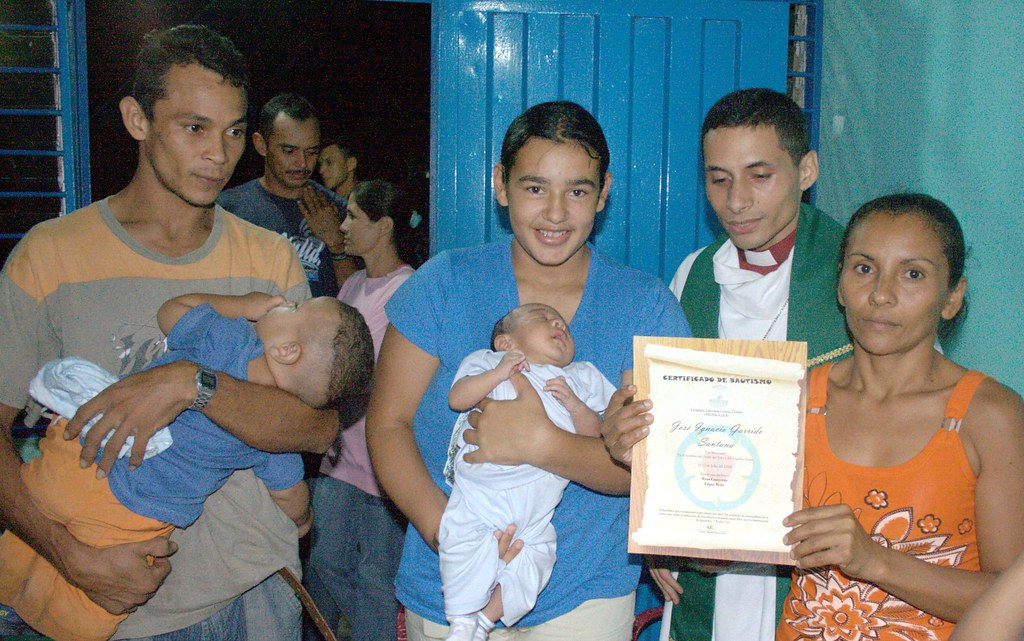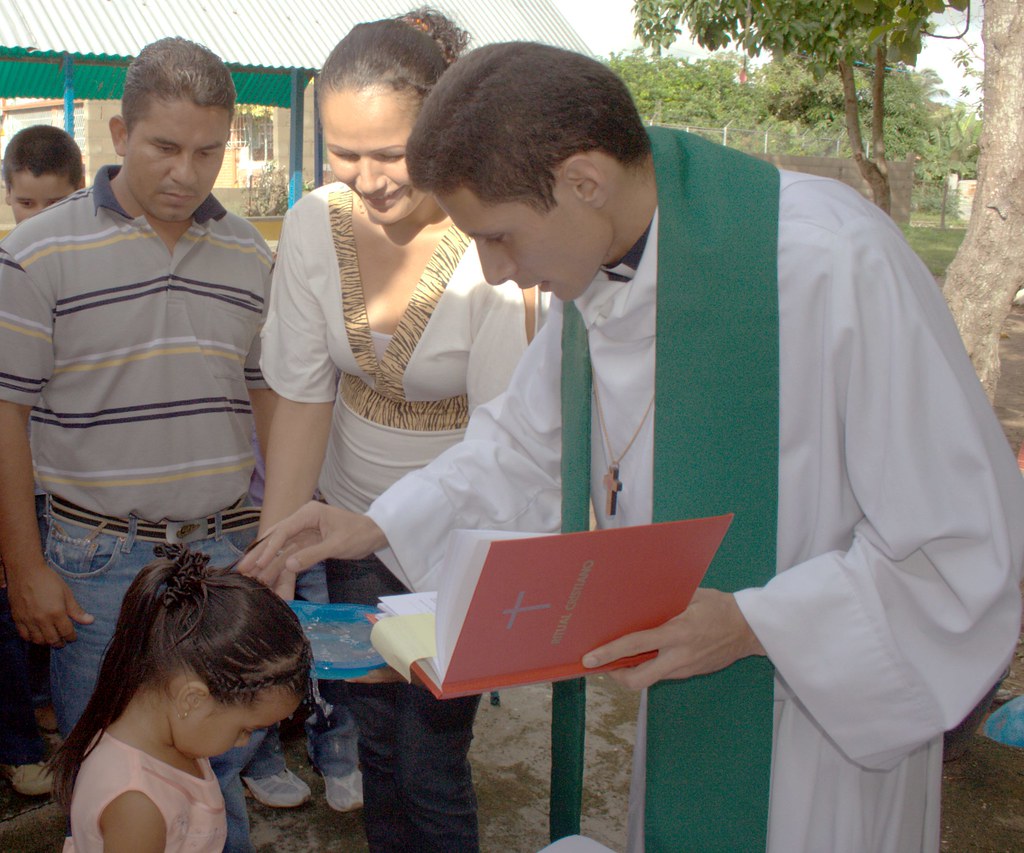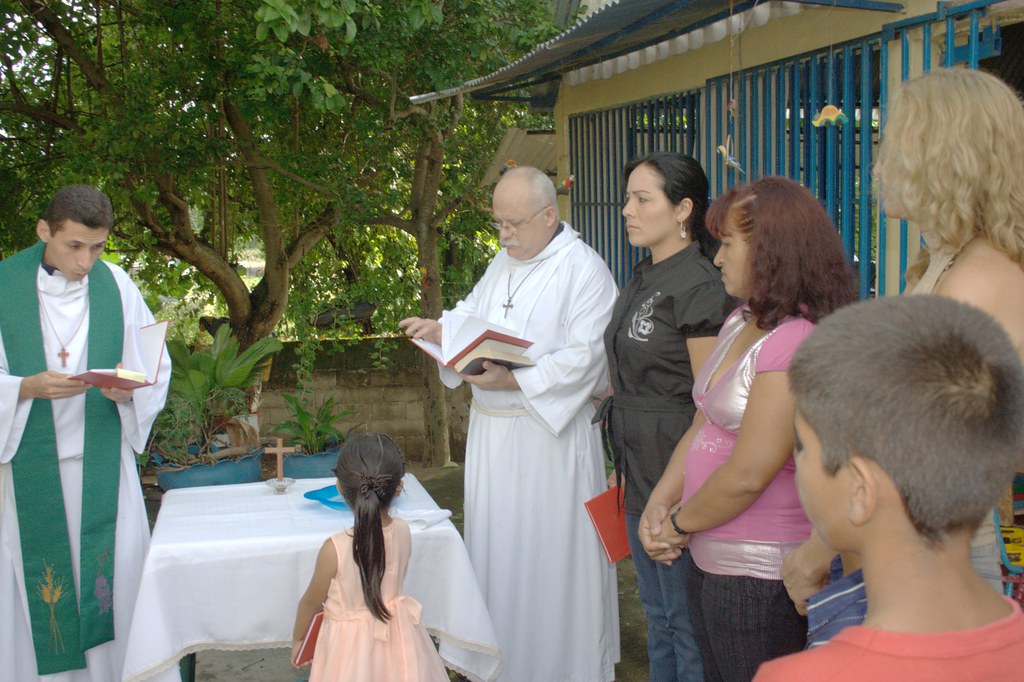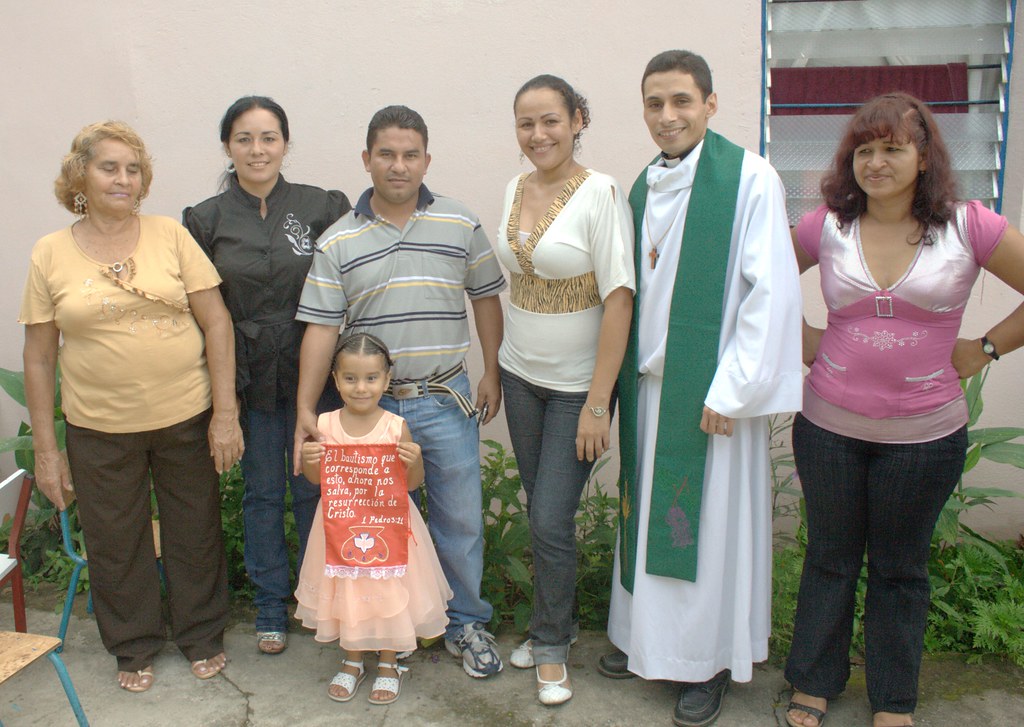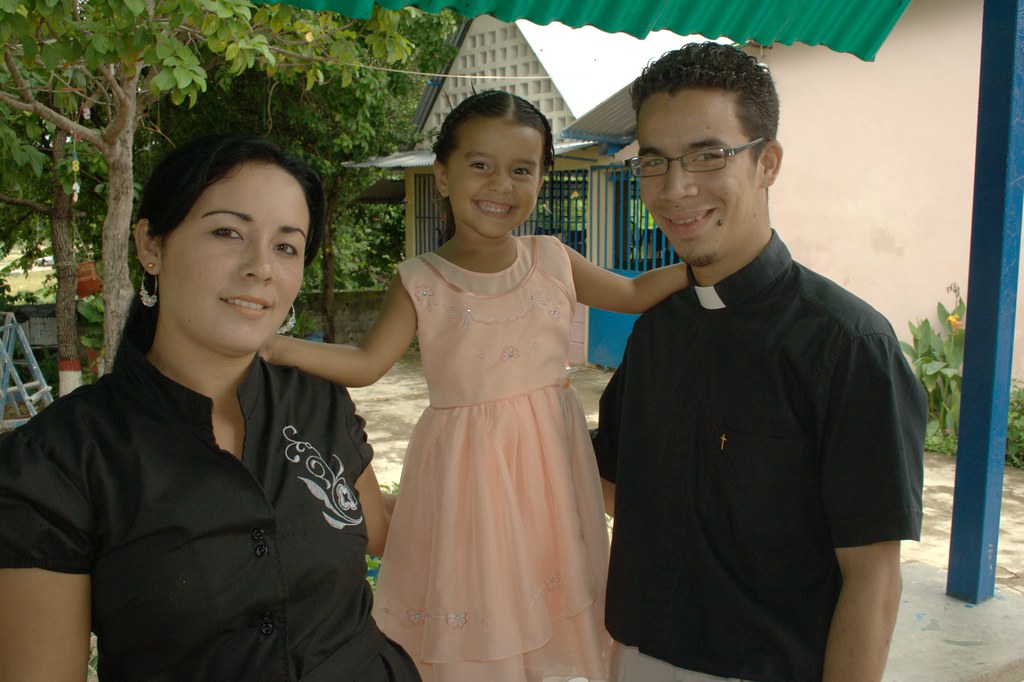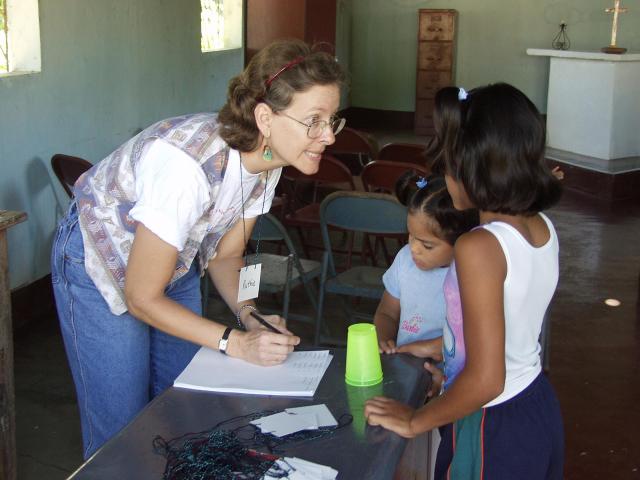 José Miguel
Albarran Pumar was baptized on on August 16, 2020, the 10th Sunday
after Trinity. Since 2005, 23 people have been baptized at our
mission. Of those baptized, 11 have received their first communion
here.
The sermon text was Luke 19:41-48, which is St. Luke’s account of the cleaning of the
Temple by Jesus. I noted that the Israelites in the Old Testament had
a special place, a house for all the people to come together for
worship, prayer and thanksgiving to the Lord. In the beginning that
place was a tent, built in front of Mount Sinai under the direction
of Moses. This tabernacle served the people on their pilgrimage in
the desert. When the people of Israel entered the Promised Land, the
tabernacle remained for many years in the city of Shiloh, then in
Jerusalem. King Solomon replaced the tabernacle with the first temple
of wood and stone a thousand years before Christ. At Epiphany
Lutheran Mission, we worshipped first under a roofed patio, but now
we have a beautiful chapel. Like the Temple of Jerusalem, this is a
house of prayer for those of all nations who worship in Spirit and in
truth.
For us, the house of the Lord is wherever the Word is preached in its purity and the
sacraments administered according to the Lord’s command. It is a
special place because the Lord Himself has invited us to gather at an
appointed place and time to receive His gifts (Hebrews 10:25). Our
bodies also are temples of the Holy Spirit (1 Corintios 6:19). As our
Lord cleared the moneylenders from the Temple, he cleanses our bodies
and renews us in spirit through holy baptism. The church, both as the
assembly of believers and place where believers assemble, belongs to
Christ. He is the One who sustains it and has promised to keep it
until His coming.
José Miguel
Albarran Pumar was baptized on on August 16, 2020, the 10th Sunday
after Trinity. Since 2005, 23 people have been baptized at our
mission. Of those baptized, 11 have received their first communion
here.
The sermon text was Luke 19:41-48, which is St. Luke’s account of the cleaning of the
Temple by Jesus. I noted that the Israelites in the Old Testament had
a special place, a house for all the people to come together for
worship, prayer and thanksgiving to the Lord. In the beginning that
place was a tent, built in front of Mount Sinai under the direction
of Moses. This tabernacle served the people on their pilgrimage in
the desert. When the people of Israel entered the Promised Land, the
tabernacle remained for many years in the city of Shiloh, then in
Jerusalem. King Solomon replaced the tabernacle with the first temple
of wood and stone a thousand years before Christ. At Epiphany
Lutheran Mission, we worshipped first under a roofed patio, but now
we have a beautiful chapel. Like the Temple of Jerusalem, this is a
house of prayer for those of all nations who worship in Spirit and in
truth.
For us, the house of the Lord is wherever the Word is preached in its purity and the
sacraments administered according to the Lord’s command. It is a
special place because the Lord Himself has invited us to gather at an
appointed place and time to receive His gifts (Hebrews 10:25). Our
bodies also are temples of the Holy Spirit (1 Corintios 6:19). As our
Lord cleared the moneylenders from the Temple, he cleanses our bodies
and renews us in spirit through holy baptism. The church, both as the
assembly of believers and place where believers assemble, belongs to
Christ. He is the One who sustains it and has promised to keep it
until His coming.
Distribution of food from LeadaChild That same Sunday we distributed foodstuffs to 27 families, thanks to support from LeadaChild, a mission society based in Olathe, Kansas and dedicated to supporting Christian education around the world. We have received financial support from LeadaChild since 2006. In the past, we have distributed donations from LeadaChild as “scholarships” for students in our preschool and Luz Maria’s afterschool tutoring sessions. That is to say, as cash for the families to buy school supplies, clothing and food. This time around we purchased food
 d brought the food back to the mission.
d brought the food back to the mission.
On Saturday, August
8, we participated in a Zoom videoconference with Nury de Millian,
LeadaChild director for Latin America. We listened to presentations
on how to reopen Christian schools during the pandemic, testimony
from a COVID-19 survivor, and advice from the Rev. Abdiel Orozco
Aguirre, the pastor of Castillo Fuerte (Mighty Fortress) Lutheran
Church in Guatemala City, Guatemala, and a immunohematologist.
LeadaChild was founded in 1968 as Children’s Christian Concern Society (CCCS) by Jim and Edie Jorns as agricultural missionaries to the Zacapa region of Guatemala. Their idea was to build a boarding house next to the new Lutheran school in Zacapa so that poor children would receive proper care while attending at the school. Jim and
Edie diligently gathered support from friends, family, and church members in their home state of Kansas. Throughout the years, CCCS grew to provide support to project sites in five world regions – Guatemala, Central America and Haiti, South America, West Africa, and Asia – and also supports an afterschool program in Bethlehem. The organization’s name was changed to LeadaChild in 2013. I had heard of the Jorns’ mission work in the 1980s, when I was a member of St. John’s Lutheran Church, Topeka, Kansas, the congregation in which Edie was raised. Luz Maria and I were privileged to meet Jim and Edie in 2006. Last fall we met Dr. Philip J. Frusti, the current executive director of LeadaChild, in the Dominican Republic. Dr. Frusti, a Lutheran teacher and former school principal, graduated from Concordia University, Ann Arbor, Michigan.Pray for recovery
We praise the Lord that Yepci Santana, Luz Maria’s daughter, is recovering from COVID-19 in Lima, Peru. Other members of Luz Maria’s family, with who we have not had face-to-face contact are recovering as well. Also in Peru, Kalen Yolanda Incata Fernández, wife of Martin Osmel Soliz Bernal, a pastor with the LCMS Mission in Lima, was diagnosed with COVID-19 after giving birth to her first child. Also, we should remember Diana Malik, a Global Lutheran Outreach missionary, who has lost 11 members of her extended family to COVID-19 in Kazakhstan. Holy and mighty Lord, who has promised, “no evil shall be allowed to befall you, no plague come near your tent” (Psalm 91:10), we beseech You to hear our cry for those who are suffering and dying under the visitation of COVID-19. Mercifully bless the means which are used to stay the spread of the pandemic, strengthen those who labor to heal and comfort the afflicted, support those who are in pain and distress, speedily restore those who have been brought low, and unto all who are beyond healing grant Your heavenly consolation and Your saving grace, through Jesus Christ, Your only Son, our Lord, who lives and reigns with You and the Holy Spirit, one God now and forever. Amen.


